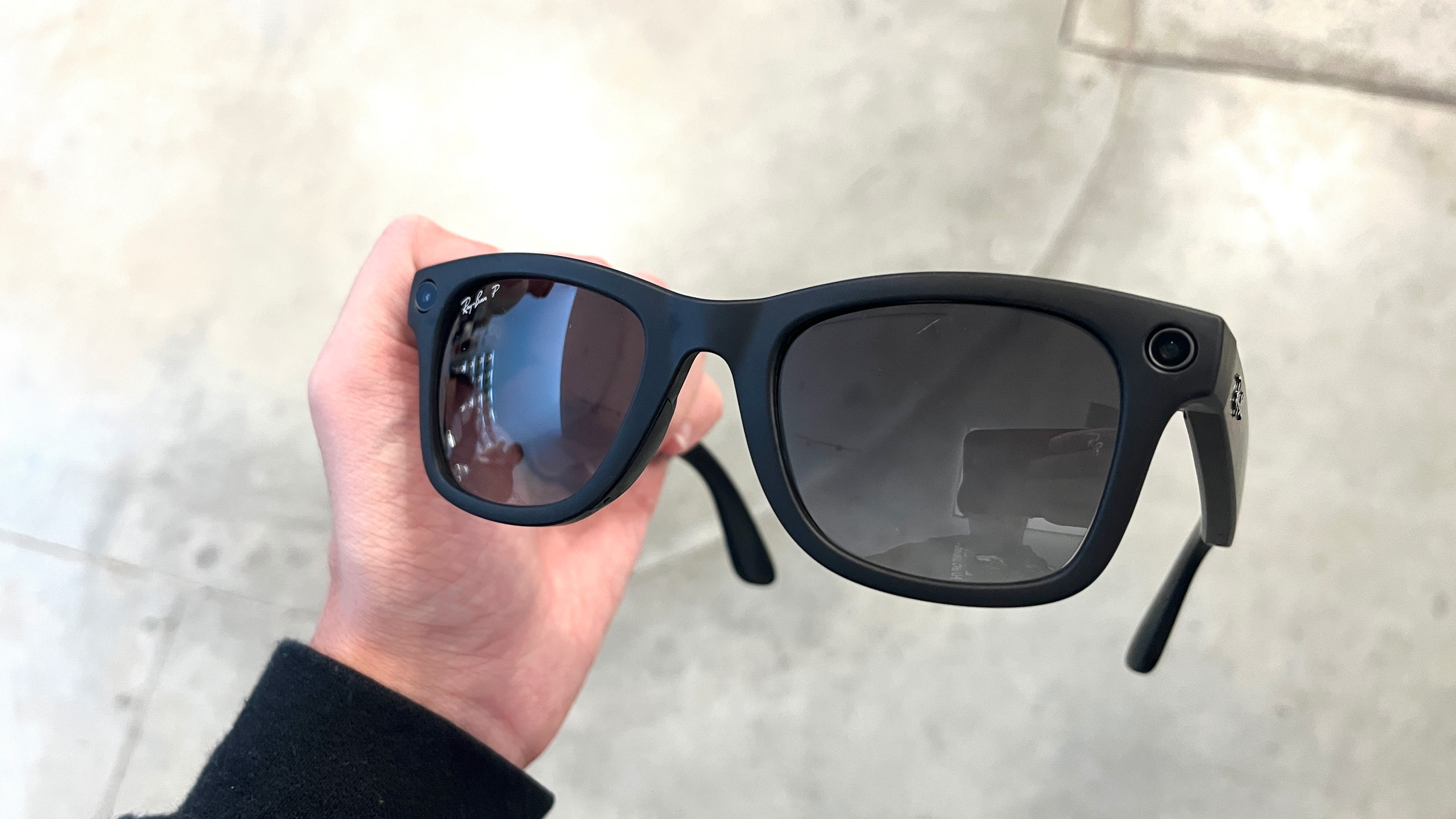What Mark Zuckerberg said about smartglasses this week reveals his opinion on AI
Meta is doubling down on making AI smart glasses the future of tech, but can they replace smartphones?

Meta is doubling down on its determination to make smart glasses the next big device, especially for AI.
In Meta's Q1 2025 earnings call, CEO Mark Zuckerberg highlighted the company's increasing focus on both AI and smart glasses, which could end up being closely tied at Meta.
Zuckerberg's comments indicate that Meta sees smart glasses as the "ideal form factor" for AI and it sounds like AI features will be front-and-center in the company's upcoming smart glasses. The question is, are smart glasses really the best device for AI (or anything, for that matter)?
See also: Best phone deals in May 2025
Features: Built-in 12-megapixel ultra-wide camera for pictures and video, Meta AI assistant, 32GB storage, dual open-air speakers, IPX4 protection, 154mAh battery, charging case.
"Glasses are the ideal form factor for AI": Meta doubles down on AI smart glasses
Meta held its Q1 2025 earnings call this week, and Mark Zuckerberg made some intriguing comments about Meta's plans for smart glasses when discussing the company's top-priority business opportunities.
He clarified that Meta sees smart glasses and AI as closely intertwined by including smart glasses under the umbrella of "AI devices," which Zuckerberg called " the next generation of computing platforms."
He laid out where he sees smart glasses in that "next generation" of tech, stating, "Glasses are the ideal form factor for both AI and the Metaverse.
Sign up to receive The Snapshot, a free special dispatch from Laptop Mag, in your inbox.
"They enable you to let an AI see what you see, hear what you hear, and talk to you throughout the day. And they let you blend the physical and digital worlds together with holograms."
If you're like me, you're probably more concerned than amazed at the thought of an AI seeing what you see and hearing what you hear all the time, but Zuckerberg seemed confident during the earnings call that AI smart glasses will be ubiquitous sooner or later.
"More than a billion people worldwide wear glasses today, and it seems highly likely that these will become AI glasses over the next 5 to 10 years."
He said, "More than a billion people worldwide wear glasses today, and it seems highly likely that these will become AI glasses over the next 5 to 10 years.
"Building the devices that people use to experience our services lets us deliver the highest-quality AI and social experiences. This will serve as an amplifier for all the opportunities I mentioned so far and unlock some new opportunities as well."
It's worth noting that this week, Meta announced changes to the privacy policy for its Ray-Ban AI smart glasses that removed the ability for users to disable data storage in the cloud.
The changes seem geared toward increasing Meta's ability to store and analyze users' voice recordings and image data to train its AI, which also sounds like what Zuckerberg refers to above when he mentions the "devices that people use to experience our services."
Smart glasses might be good for AI, but they won't replace your phone

In the earnings call this week, Zuckerberg boasted that "Ray-Ban Meta AI glasses have tripled in sales in the last year," so it's no surprise Meta's confidence around its smart glasses is on the rise.
Meta also showed off an impressive demo of a prototype pair of "Orion" smart glasses at its Meta Connect presentation last year and has continued to hint at more advanced smart glasses, including a new version of its Ray-Ban glasses.
However, despite that confidence, I'm still not convinced smart glasses are the best device for AI or capable of replacing phones. At least, they won't be any time soon.
Smartphone innovation has stagnated somewhat over the past few years, but even then, the smartphone is still arguably the perfect form factor for a personal device. It's small enough to bring anywhere, and the touchscreen is the most streamlined, yet straightforward way of interacting with content and communicating.
Smart glasses aren't that intuitive. Visual content is harder to display on glasses (without making them too bulky like VR headsets), and there's no physical user interface, short of a controller. Smartphones are more accessible, affordable, and convenient to use than smart glasses, and you can use any AI assistants on your phone already. Numerous AI apps can do everything a pair of Ray-Ban AI smart glasses can.
Plus, even if smart glasses somehow end up being the best device for AI, AI itself would have to become essential enough to justify spending hundreds or even thousands of dollars on what is essentially a dedicated AI device.
That didn't work out for the Rabbit R1 or the Humane AI pin, so Meta better have some seriously impressive plans for its AI smart glasses if it wants them to succeed in a challenging market.
More from Laptop Mag
- Meta is hell-bent on making 2025 the year of smart glasses — and I've never been more ready
- Meta Ray-Ban Glasses Gen 3 rumors: What to expect in the next-gen smartglasses
- The best smart glasses you can buy just got a lot creepier

Stevie Bonifield is a freelance tech journalist who has written for PC Gamer, Tom's Guide, and Laptop Mag on everything from gaming to smartwatches. Outside of writing, Stevie loves indie games, TTRPGs, and building way too many custom keyboards.

